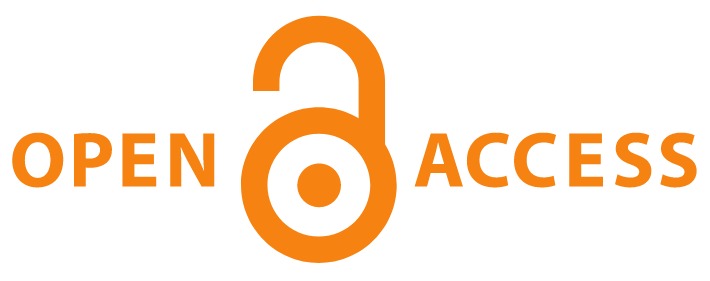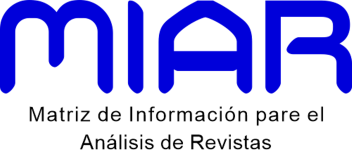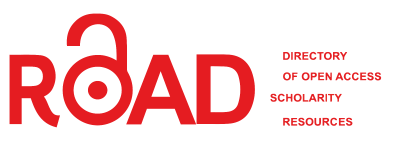Evaluation of irrational ideas in applicants to various careers offered by the Peninsula Santa Elena State University in the second semester of 2013 - 2014
DOI:
https://doi.org/10.26423/rctu.v2i1.39Keywords:
irrational ideas, belief systems, behavior and cognitionAbstract
This research conducted at the Santa Elena Peninsula University evaluates the belief systems that have been increasing in the social and technological careers in the sense of values is important and essential, applicants offered eight careers such as Accountants, nursing, Tourism, IT, civil engineering, petroleum engineering, Administration and Marine Biology held belief systems can affect school performance and expectations with entering the higher education system. Ten areas of the TCI Test Irrational ideas are revised and abbreviated version Need for acceptance test, the presence of self expectations, guilt, frustration intolerance, levels of worry and anxiety, emotional irresponsibility, problem avoidance, dependence are evaluated , helplessness and perfectionism. This is a first test survey on belief system based on other higher studies in similar populations and the results show similar levels of belief systems among students majoring in question and then a comparative study with a population of the School of Psychology that is graduating. Statistical analysis of the data would show the areas where from the Student Welfare Department should work to change certain ways of thinking that do not allow the normal development of academic activities. An analysis of the percentages for items of irrationality in the areas further ago. In order to meet our student population and to anticipate better performance in their step and their permanence in the institution of higher education. Were evaluated without regard to the whole population has been called because that way you can check more accurately the data in question. Is proposed on the basis of these data to initiate a program of psychological intervention to strengthen comprehensively changes belief systems and values that will promote technological change in line with the social area and rescue principles and ways of thinking from the region and to be based on good living. The projection having on schools and colleges should be related to the professional profiles of each study area.
Downloads
References
IBAÑEZ REYES J, Onofre G, Vargas J. (2012) Terapia Racional Emotiva, una revisión actualizada de la Investigación. Revista Electrónica de Psicología Iztacala, vol 15, Nro. 4, Pp 4; 12.
DURAN LOPEZ M, González A, Rodríguez M. (2009) Motivaciones de Carrera, creencias irracionales y Competencia Personal en los estudiantes de Psicología. Revista de Enseñanza de Psicología, Vol 5, nro. 1
CHAVES CASTEÑO L, QUICENO N, (2010) Validación del Cuestionario de Creencias Irracionales en Población Colombiana. Revista de Psicología Universidad Antioquia, Junio Vol2, Nro. 3.
CALVETE E, CARDEÑOSO O, (1999) Creencias y síntomas depresivos. Resultados preliminares en el desarrollo de una escala de Creencias Irracionales abreviada. Universidad de Deusto, Anales de Psicología vol 15, nro. 2
COHELO REBELO L, (2012) ¿Damasio ha conseguido resolver el problema de la mente? Y el dualismo se mantiene en el camino. Universidad Nacional Autónoma de México, Revista Electrónica de Psicología Iztacala, Diciembre vol 15, nro 4.
ELLIS, A (2011) Manual de Terapia Racional Emotiva, 10ma. Ed. Editorial Desclee de Brouwer, Barcelona.
BARINGOLTZ, S (2012) Puentes de Terapia Cognitiva, Problemas y Alternativas. Editorial Polemos, Buenos Aires, Argentina.
BUNGE, E (2011) Terapia Cognitiva con Niños y Adolescentes, aportes Técnicos. Editorial Akadia. Buenos Aires, Argentina
BARINGOLTZ, S (2012) Terapia Cognitiva del dicho al hecho, Editorial Polemos, Buenos Aires, Argentina.
DRYDEN, W. (1989) Práctica de la Terapia Racional Emotiva, Editorial Desclee de Brouwer, Barcelona, España.
CORREA, R (2013) Plan Nacional del Buen vivir, Senplades, Quito, Ecuador
Downloads
Published
Issue
Section
License
El titular de los derechos de autor de la obra, otorga derechos de uso a los lectores mediante la licencia Creative Commons Atribución-NoComercial-CompartirIgual 4.0 Internacional. Esto permite el acceso gratuito inmediato a la obra y permite a cualquier usuario leer, descargar, copiar, distribuir, imprimir, buscar o vincular a los textos completos de los artículos, rastrearlos para su indexación, pasarlos como datos al software o usarlos para cualquier otro propósito legal.
Cuando la obra es aprobada y aceptada para su publicación, los autores conservan los derechos de autor sin restricciones, cediendo únicamente los derechos de reproducción, distribución para su explotación en formato de papel, así como en cualquier otro soporte magnético, óptico y digital.













